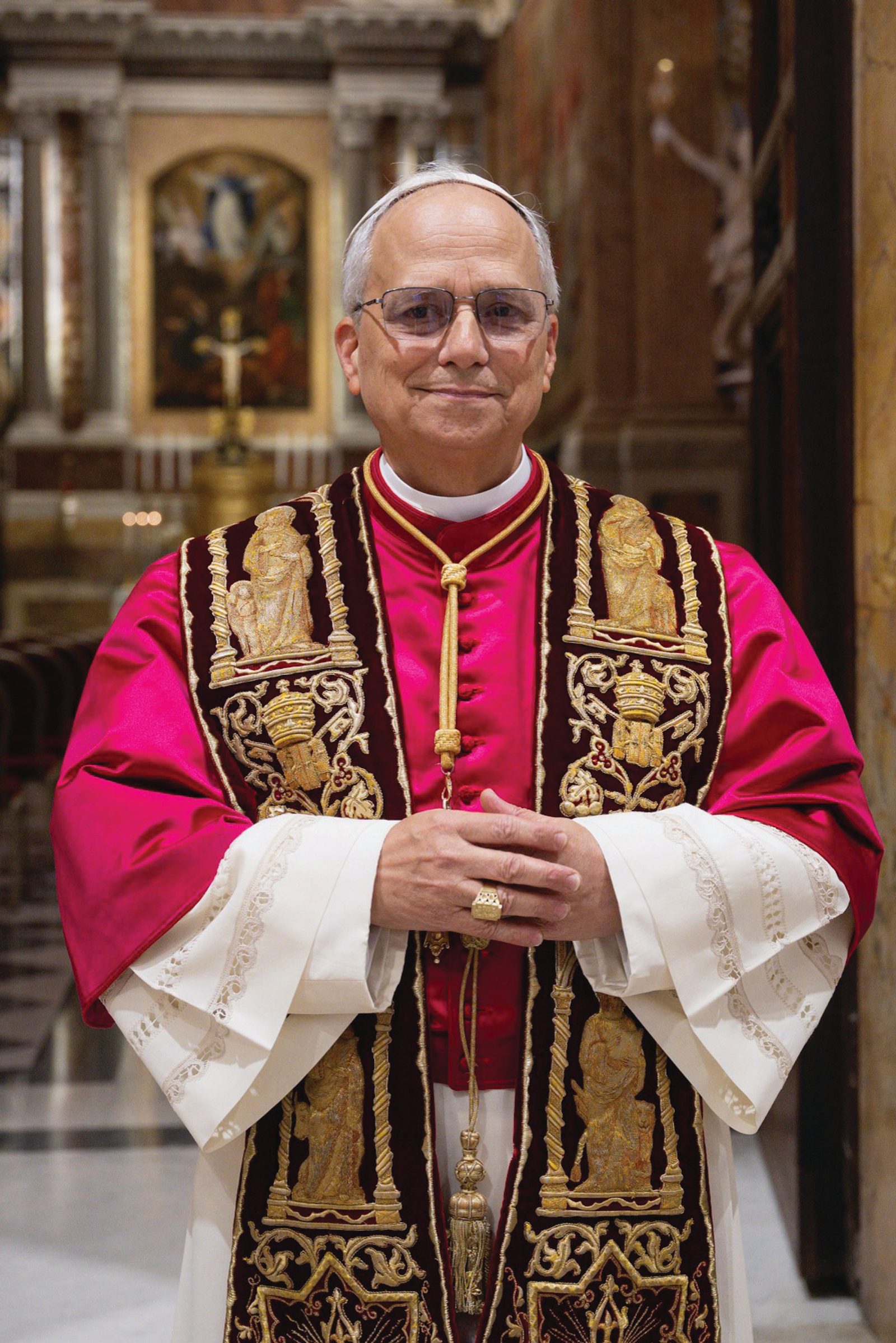The Catholic Church here in Washington and around the world has had quite a transformation these last four or five months.
In our own archdiocese, we learned in early January that Cardinal Wilton Gregory would be retiring after six years as our wonderful shepherd. And we learned that a new cardinal from San Diego was coming to take his place.
Just six weeks after Cardinal Robert W. McElroy was installed here in Washington, Pope Francis went home to God only hours after being out in his popemobile and greeting the faithful on Easter Sunday.
Changes in leadership always bring excitement and hope for the future and curiosity about our new shepherds. We naturally want to know more about them as people and as leaders. Are certain issues particularly important to him? Is he known for a certain charism because of his spirituality and his experience?
Our new shepherd, Cardinal McElroy, clearly has many gifts to share with us, and we are only beginning to understand the gift we have in him. And, of course, there is great excitement over the surprise election of American Cardinal Robert Prevost as our new pope.
One of the cardinals attending the conclave said something to the effect of, “God knows who He wants. I just hope we have enough energy and understanding to follow the Holy Spirit and pick the one God wants.”
I love that statement. We celebrate that deep trust in the Holy Spirit every time the cardinals gather to elect the next successor to Peter, and for many of us, there is a sense that the cardinals did in fact hear the Holy Spirit in their inspired choice.
What excited you the most? It is very exciting – and extremely surprising – to have an American as pope. I have great hopes that he, as someone who understands our culture, can help us as a country grow closer to God. I hope that he helps us see that there is always a way to find the Lord, even amid struggles and dissension in our politics and the Church.
I was moved that Pope Leo XIV, as he stepped out on St. Peter’s balcony for the first time as pope, began his pontificate by asking for peace in the world.
Some were happy that at 69 he is on the younger side to become pope and may be able to serve with energy and vigor for years to come. Others are excited that he’s from Chicago. I have many friends from that part of the country, and they are thrilled that a fellow Midwesterner has been chosen to lead the Church throughout the world.
The Augustinians, educators of our new pope and founders of Archbishop Carroll High School here in Washington, also enthusiastically embraced one of their own. As did Villanova University near Philadelphia, where he graduated in 1977 and which is also run by the Augustinians.
All those excited me as well, but I think what moved me the most was the name he chose: Leo XIV. He clearly referred to Pope Leo XIII, who was the architect of modern Catholic Social Teaching.
Leo XIII is known as the social justice pope because of encyclical, Rerum Novarum. This “Magna Carta of Social Justice” was published in 1891, not long after the Industrial Revolution when much of the world shifted from an agrarian economy to one of industry, machinery, and factories.

Pope Leo XIII forced the world to think about how we treated workers in factories and other industrial places. He spoke of women's rights and child labor laws. He highlighted the right to safe working conditions. He reinforced the right to unionize if necessary.
This encyclical had a tremendous impact at a time when the world needed it, and it became the foundation of what we know today as the Church’s seven principles of social justice. These have been near and dear to my heart throughout my 52 years of priesthood, but especially in my time at Catholic Charities.
Unfortunately, I think most Catholics are not too familiar with these principles, so let me take this opportunity to share them once again:
- Life and Dignity of the Human Person
- Call to Family, Community, and Participation
- Rights and Responsibilities (to protect human dignity)
- Preferential Option for the Poor and Vulnerable
- The Dignity of Work and the Rights of Workers
- Solidarity (We are one human family.)
- Care for God’s Creation
Pope Leo XIV cited parallels between the Industrial Revolution in the time of Leo XIII and what we might call today the Technology Revolution that has unfolded over the last 50 years or so. Advancements in computing, the Internet, and so much more have changed how we live, work, and interact, and we need the Church once again to be a voice in protecting the dignity of the human person created in God’s image.
I am hopeful that God has given us a great gift in Leo XIV to lead us in a world that still needs social justice and a greater willingness to take care of those in need. I believe these key principles of Catholic Social Teaching will be increasingly celebrated and practiced under the leadership of our new pope.
Let us all pray for Pope Leo XIV and for God’s Church throughout the world. May his time as pope lead us all to greater peace, a willingness to work for social justice, and care for our neighbor. And may the Church come alive here in the United States and around the world under our new shepherd as he seeks to bring God’s kingdom of peace, love, and mercy to all.
(Msgr. John Enzler serves as the mission advocate of Catholic Charities of The Roman Catholic Archdiocese of Washington and is a chaplain at his alma mater, St. John’s College High School in Washington. He writes the Faith in Action column for the archdiocese’s Catholic Standard and Spanish-language El Pregonero newspapers and websites.)














